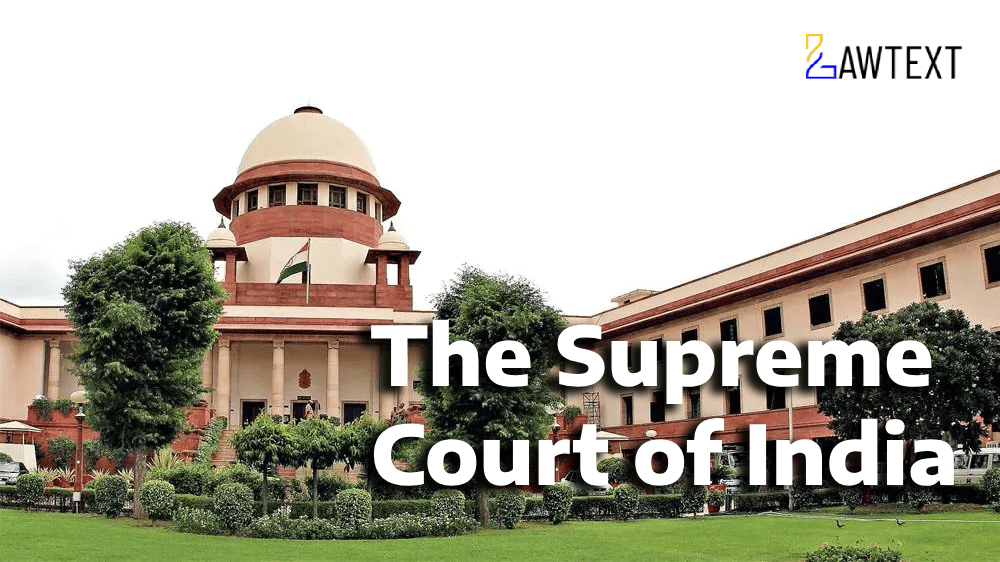CASE NOTE & SUMMARY
The case examines the constitutionality of the Uttar Pradesh Board of Madarsa Education Act, 2004, following the Allahabad High Court's decision declaring the Act unconstitutional. The Act aimed to regulate Madarsas in Uttar Pradesh by setting educational standards, teacher qualifications, and examination protocols. The Supreme Court's review focuses on whether the Act aligns with principles of secularism, equality, and the fundamental rights of minorities under Articles 14, 21A, 25–30, and 28 of the Indian Constitution. Additionally, it considers the legislative competence of the Uttar Pradesh State Legislature under Entry 25, List III, vis-à-vis the University Grants Commission Act under Entry 66, List I.
1. Background and History of Madarsas
- History: Madarsas historically provided religious and general education, with origins tracing back to the Tughlaq era. Over time, Madarsas adapted to state regulations, and by 2004, the Uttar Pradesh Madarsa Act was introduced to further standardize education within these institutions.
- Government Steps: The Act empowered the state to modernize Madarsa curricula, including introducing NCERT-based textbooks and formalizing teacher standards.
2. High Court Proceedings and Judgment
- The Allahabad High Court held the Madarsa Act unconstitutional for allegedly violating secularism and fundamental rights under Articles 14, 21, and 21-A. The court ordered the government to transition Madarsa students to regular educational institutions.
3. Supreme Court’s Analysis
- Secularism and Minority Rights: The Court analyzed secularism within the Indian context, balancing it with the right of minorities under Articles 25–30 to establish and administer educational institutions. The right allows Madarsas to impart education, including religious studies, without compromising secularism.
- Legislative Competence: The Court assessed if the state had the authority under Entry 25 of List III to legislate on Madarsa education, considering overlaps with central legislation under the UGC Act, Entry 66, List I.
4. Key Constitutional Provisions and Arguments
- Article 28: The Court differentiated religious education from religious instruction, noting that secular subjects in Madarsas do not contravene Article 28, which restricts religious instruction funded by the state.
- Article 21-A and 30: The Court considered the exclusion of Madarsas from the RTE Act, affirming that minority rights are protected, and the state can regulate non-religious aspects of education for quality standards.
Legal Provisions and Sections Discussed
- Uttar Pradesh Board of Madarsa Education Act, 2004: Establishes the Madarsa Board, outlines its structure, powers, and the scope of educational regulation within Madarsas.
- Article 21-A: Right to education; compulsory and free education for children, analyzed for its application to Madarsas.
- Articles 25–30: Protection of minority rights to freely practice and propagate religion, and to establish educational institutions.
- Article 28: Restriction on religious instruction in state-funded institutions.
- UGC Act and Legislative Competence: Addressing the state's power under Entry 25, List III, and potential conflict with Entry 66, List I, regarding higher education standards.
Ratio Decidendi:
The Court reasoned that while the state can regulate educational standards in Madarsas to ensure quality and align curricula with broader educational goals, it must respect minority rights to administer religious education under constitutional protections. The state's regulatory power does not extend to infringing upon Madarsas’ religious teachings, provided these teachings do not constitute state-funded religious instruction in violation of secular principles.
Subjects:
Secularism, Minority Rights, Educational Regulation, Legislative Competence.
Constitutional Law, Secularism, Right to Education, Minority Rights, Madarsa Education, Legislative Competence.
Citation: 2024 LawText (SC) (11) 50
Case Number: Special Leave Petition (C) No.8541 of 2024 With Special Leave Petition (C) No.7857 of 2024 With Special Leave Petition (C) No.7821 of 2024 With Special Leave Petition (C) No.7878 of 2024 With Special Leave Petition (C) No.7890 of 2024 With Special Leave Petition (C) No.13038 of 2024 With Contempt Petition (C) No.591 of 2024 In SLP (C) No.7878 of 2024 And with Transfer Petition (C) No.2697 of 2024
Date of Decision: 2024-11-05
Case Title: Anjum Kadari & Anr. Versus Union of India & Ors.
Before Judge: [Dr Dhananjaya Y Chandrachud CJI. , J B Pardiwala J. , Manoj Misra J.]
Appellant: Anjum Kadari & Anr.
Respondent: Union of India & Ors.

